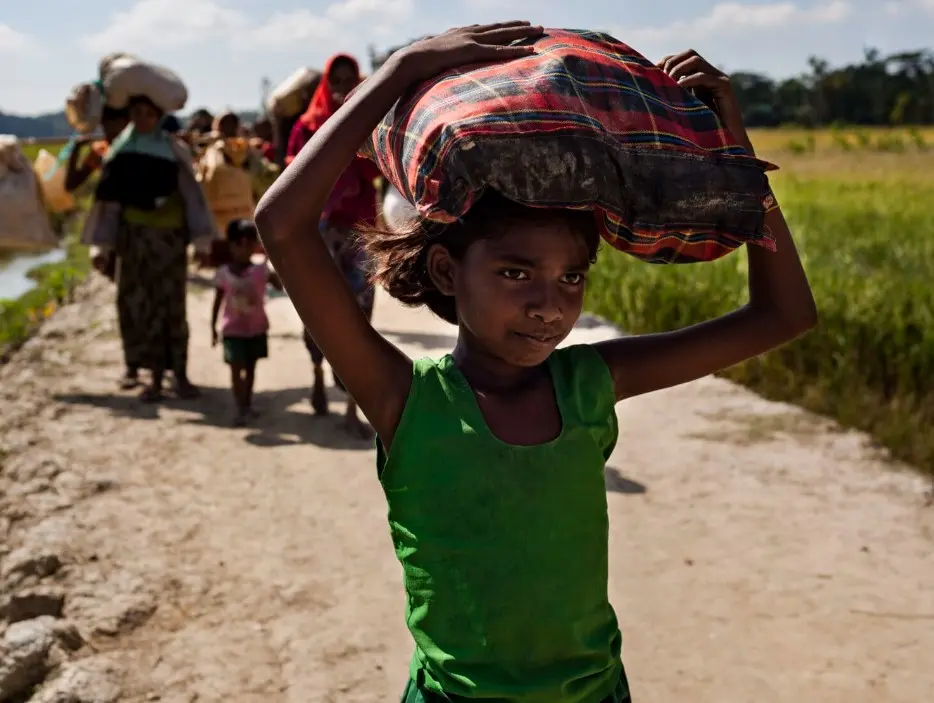Immigration has long been a complex and contentious issue in the United States. While debates often center on economic, national security, and political repercussions, the impact on children—one of the most vulnerable groups—often receives less attention. Policies affecting immigrant children bring about challenging humanitarian concerns, especially when it comes to securing their safety, education, and well-being.
Migrant children frequently face an uphill battle. From detention facilities at the border to navigating confusing legal processes, these young individuals are caught in a system primarily designed with adults in mind. Addressing the needs of children requires a distinct approach—one that focuses on their unique vulnerabilities while respecting their human rights.
Challenges Facing Migrant Children
Detention and Separation Policies
One of the most critical humanitarian issues is the detention of children in immigration facilities. Although US law dictates that children cannot be held for long periods, the enforcement of border policies often leads to extended stays in unsuitable conditions. Physical overcrowding, inadequate healthcare, and lack of access to proper education are just some of the issues reported in these facilities. For children fleeing violence or poverty, this environment can deepen trauma rather than provide protection.
Additionally, family separation policies have created lasting emotional and psychological scars. Past efforts to deter unauthorized migration by splitting families at the border often left children stranded without their caregivers. While such policies have been challenged and restructured, reports of family separations persist, raising questions about the long-term emotional toll on children.
Limited Legal Protections
Navigating the US immigration system is daunting for adults, but for children, it is an even more significant challenge. Many migrant children arrive unaccompanied and must rely on scarce legal resources to make their case for asylum, residency, or other protections. Without access to legal representation, these children are much less likely to succeed in immigration courts, leading to potential deportation to unsafe environments.
The existing policies also make pathways to legal status complex and restrictive for children. Programs meant to support younger migrants, like Special Immigrant Juvenile Status (SIJS), often have lengthy wait times and inconsistent application across states. Without reliable protections, many children remain in legal limbo.
Interrupted Development
The psychological stress of migration combined with detention and uncertainty about their future can disrupt critical developmental stages for children. Many migrant children miss out on education due to language barriers, lack of access to schools, or forced migration in the middle of their academic year. This jeopardizes their ability to integrate into American society and achieve long-term success.
The trauma associated with displacement, as well as the post-migration experiences of discrimination and poverty, further undermines their emotional and physical well-being. Left unaddressed, these impacts ripple across generations.
Policy Reform as a Solution
Developing Child-Focused Immigration Strategies
To protect migrant children, a more humane, child-centric approach to immigration policy is essential. This begins with rethinking detention practices. Policies should prioritize alternatives to detention, such as community-based programs. Models in other countries have demonstrated that housing migrant families within communities, rather than detention centers, leads to better outcomes for children while minimizing costs.
Comprehensive case management systems should also be considered. These systems pair children and families with legal case managers who guide them through the immigration process, ensuring they attend required legal proceedings while remaining in safe, stable environments.
Expanding Access to Legal Representation
The absence of legal representation for migrant children is a glaring gap in the immigration system. Guaranteeing access to pro-bono or state-funded legal services is a crucial step to leveling the playing field. Children with lawyers are significantly more likely to stay in the US and receive necessary protections. Streamlining the process for programs like SIJS or Temporary Protected Status (TPS) can also offer children quicker relief from unsafe situations.
Strengthening Protections Under DACA
Deferred Action for Childhood Arrivals (DACA) has provided temporary protection for eligible young immigrants who arrived in the US as children. Policies that promote DACA renewal and expand the program could ensure that more children remain in stable environments while pursuing education and employment opportunities. While DACA is not a permanent solution, it represents an effective stopgap to prevent vulnerable populations from falling through the cracks.
International Collaboration
The reasons children migrate are often rooted in issues beyond US borders, such as violence, poverty, and political instability in their home countries. Partnering with neighboring nations to address the root causes of migration can reduce the number of children forced to make dangerous journeys. Investing in development programs abroad and creating regional frameworks for migration can ease the pressure on US immigration systems and improve outcomes for families at risk.
The Case for Compassion
Protecting migrant children is not only a matter of policy but a moral obligation. These children are escaping life-threatening situations to seek safety and opportunity, dreams that often mirror long-standing ideals about the United States itself. Failing to address their needs properly undermines the principles of justice and humanity.
While it is not easy to overhaul an immigration system fraught with inefficiencies and political divisions, policymakers must prioritize the most vulnerable. The future of these children—and the nation itself—depends on finding humane, just, and sustainable solutions.
Final Thoughts
The humanitarian crisis involving migrant children demands urgent attention and action. Implementing child-focused strategies, easing legal pathways, and prioritizing compassion are essential steps toward a more equitable immigration system. Above all, these changes can create a system that not only upholds the law but also reflects fundamental values of dignity and opportunity.
Also Read-How Personal Injury Lawyers in Florida Support Health and Wellness After an Accident
